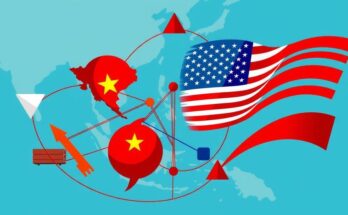President Trump plans to impose new tariffs on Canada and Mexico starting March 4, while doubling tariffs on China to combat drug trafficking. These moves might lead to inflation and affect trade relations, raising concerns about economic impact and political fallout.
In a significant economic announcement, President Donald Trump has stated his intention to impose new tariffs on Canada and Mexico beginning March 4. Additionally, he plans to double the existing 10% tariffs on imports from China. These tariffs are part of a larger strategy to address the issue of illegal drug trafficking, particularly the smuggling of fentanyl into the United States, which Trump described as occurring at “unacceptable levels.”
Trump discussed these measures via a post on Truth Social, emphasizing that import taxes would compel countries like Canada and Mexico to improve their enforcement against drug trafficking. He stated, “We cannot allow this scourge to continue to harm the USA, and therefore, until it stops… the proposed TARIFFS will… go into effect as scheduled.”
The implications of these tariff increases could generate instability in the global economy. Consumers express concern regarding the potential for rising inflation and the impact these tariffs may have on the auto industry, particularly given that Canada and Mexico are critical trade partners. The possibility of elevated prices and reduced economic growth may foreseeably lead to political repercussions for President Trump.
As the proposed tariffs approach, reactions from various economic sectors and consumers will be closely monitored. The effects of these trade policies will likely shape the economic landscape and influence future election sentiments as stakeholders respond to the potential for heightened costs and reduced trade efficiency.
President Trump’s upcoming tariffs on Canada and Mexico, alongside increased tariffs on Chinese imports, are part of a strategy to combat drug trafficking. This decision raises concerns about inflation and potential impacts on the economy and trade relations with key partners. Observers will monitor the repercussions of these policies on the market and public sentiment as the implementation date approaches.
Original Source: wsvn.com




